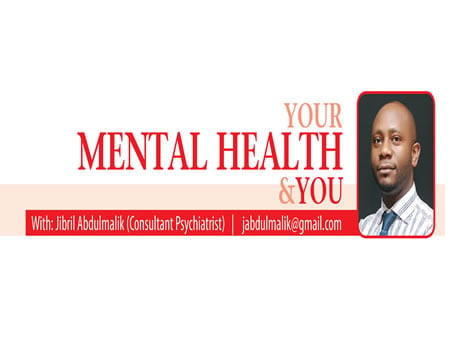MRS Bolarinwa is a 35-year-old civil servant with a 10-year-old boy, Akin, who had a diagnosis of autism and severe intellectual disability. Her husband soon became fed up with the challenges and sent her out of his house – claiming not to know what she did during the pregnancy that affected the boy. Thus, she struggled on her own to care for him by herself, over the past five years; while still retaining her job as a civil servant in a public hospital.
To compound matters for Mrs Bolarinwa, her family were convinced that her fate was as a result of a spiritual attack and her mother has been harassing her to go for deliverance and to pray for a miracle that will make Akin ‘whole’ again. She knew better and refused, so they washed their hands off her, to sort things out by herself. Her mother was so upset that she refused to even assist with looking after Akin anymore.
Her greatest headache was finding a good school with supportive teachers for him. She had already changed schools five times in three years and was becoming frustrated at the poor attitude and lack of empathy of some teachers and the school management. Someone suggested the state school for children with special needs, which had boarding facilities; but she was traumatized by the sight that greeted her eyes when she set foot there.
The children were poorly looked after, and the structures were dilapidated and an eyesore. There was no way she was going to send Akin to live in such conditions. She resolved, as she drove out of the compound, that if things didn’t improve soon, she may have to resign her job and start petty trading so she could look after Akin and try to teach him by herself.
Discussion
Last week, we discussed the situation of Ngozi who was diagnosed with bipolar disorder as an undergraduate student. She had recovered after treatment but was experiencing so much stigma and discrimination that she opted to withdraw from the school and start afresh in a different university. This week, we continue in the same vein, in commemoration of this month’s theme as Psychosocial Disability Awareness Month.
What is immediately apparent in the case of Mrs Bolarinwa and her son, Akin, is the lack of access to the spectrum of services across various sectors that will allow Akin to thrive and achieve his full potential and the lack of support and social services to relieve the caregiving burden on Mrs Bolarinwa. Thus, she was on the verge of quitting her job due to the frequent queries and complaints about her taking time off duty in order to cater to her son.
Furthermore, she struggled to access speech therapists, a developmental psychologist or a child psychiatrist to review her son from time to time and help with his evolving needs. Even access to basic education via schools was a herculean barrier that she was yet to resolve.
These challenges are at the core of psychosocial disabilities and the reason for designating the month of July, to draw attention and create awareness around them. We should also note that persons with mental health challenges who develop psychosocial disabilities often require comprehensive support services that go far and beyond just providing medical interventions in hospitals alone.
They require psychological as well as social and rehabilitation services – which unfortunately, are very poorly resourced in Nigeria and other developing countries. The ministries of social welfare are frequently not sensitized to the need for developing and funding services to cater to those with psychosocial disabilities.
If disability is one of the great human rights challenges of this century, then within this, psychosocial disability remains one of the most challenging and misunderstood areas of disability.
Role of the Mental Health Bill
The Lunacy Act of 1958 still subsists, with its obsolete regulations and the poor understanding of mental ill health as at the time the law was passed. Several attempts at producing a revised mental health bill have unfortunately been unsuccessful thus far.
The latest draft successfully underwent public hearing on the 17th February 2020, and we are cautiously optimistic that the Senate Committee on Health, ably chaired by Senator (Dr) Yahaya Ibrahim Oloriegbe, will not allow this effort to suffer the fate of past attempts.
The relevance of an updated Mental Health Bill that is in tandem with global best practices is that it will hopefully ensure that there is a legal framework underpinning the provision and regulation of comprehensive mental health services that promotes and guarantees humane care, respects personal dignity and provides a spectrum of services across the biomedical, psychological as well as social interventions.
YOU SHOULD NOT MISS THESE HEADLINES FROM NIGERIAN TRIBUNE






